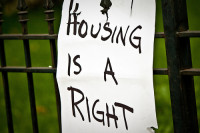Mass shootings, war, road rage – it’s just too much. What is all this anger rooted in? We “seem to talk less and less about where the rage-sickness causing these massacres comes from,” says Matt Taibbi.
Anger starts in our limbic (fight or flight) brains. Humans get triggered. Why? We feel powerless, we want to matter, we need to be heard and acknowledged, we’re traumatized, hurt, trying to protect, full of old beliefs, wanting understanding, have unmet needs. Reasons for anger are many.
One important way to stop it is by regulating that round ball above our necks — the brain.
People carry painful emotions underneath their armor: self-hate, fear, prejudice, paranoia, feeling abandoned, wanting to belong, addiction to the adrenalin of fighting and more. Humans want to dominate and compete. We’re greedy, contrary, judgmental, smoldering, bitter or blowing our gaskets. We all have an “inner Trump.” Well, maybe not that bad…
Until the boiling pot inside us heals, humans will destroy life with bow and arrows, atom bombs, or whatever we can get our hands on. Gun control is important. But there are other cures, too.
We say we’re shocked by “mentally ill” people doing heinous crimes, while we turn our heads from daily abuses: lack of impulse control in ourselves, too little affordable mental health care, needed housing and jobs, etc. And our disbelief in the face of all this is another way of distancing ourselves from the problems.
What are the solutions? Jonathon Freedland says we need to face anger and teach Nazi history with “renewed vigor” gaining “urgent understanding that this is no longer about the past but about averting a deadly future.”
We’re lulled into cultural conditioning that makes raging warriors into heroes. Rocky Stallone and Arnold Schwarzenegger were glorified in the movies and news, but the brave “ravager” adoration has to stop.
We wonder why we have a 60 percent divorce rate when nobody learned to work through conflict growing up. Kids and adults need to understand their emotions and learn communication skills, not shooting. Unmet needs will never be quieted without a listener.
The heartbreaking murders at the Veterans Home in Yountville just came through the news as I was writing this. It’s horrifying, painful beyond words and close to home.
We live in a violent society with a big slice of the economy that’s dependent upon the production of weapons. Senseless killing continues through centuries. Massacres everywhere, from Rwanda, slavery, 60,000 women executed as “witches,” animals slaughtered painfully, kids killed in schools. And on and on.
Just this week, I went for a stroll on a peaceful street and suddenly a speeding car flew by me, right through the stop sign. My hands flew up in a “don’t shoot me” mode.
It’s time to stop chronic warfare, at home and in the world. How? We need new thinking and values something like Gandhi or Martin Luther King modeled. And we have to regulate our own ballistic, hot under the collar, screaming, cantankerous, impatient, pissed-off selves.
Sure, I get judgmental – and ornery too. I sometimes flare up like a hydrogen balloon. The next day I wonder where that came from. It’s usually rooted in fear or hurt, wanting understanding or a longing for justice.
Eckhart Tolle says: “Before one condemns the terrorists, one needs to see that terrorism is only a more extreme manifestation of the same dysfunction that exists in everyone.” Regulating harmful emotions inside ourselves is our own moral responsibility.
I’m not saying all anger is bad; outrage can motivate us to leave abusive situations or change institutions. Fury can fuel our empowerment and give us a voice– if we use it consciously and for the common good. Our systems are failing, quality care and affordable living is vanishing, the division between the rich and poor is wide. Still, we must stay engaged.
We, the people, need to keep communicating and involved with solutions. George Monbiot writes that our renewal depends on a new political story. “Without a new story that is positive and propositional, rather than reactive and oppositional, nothing changes. With such a story, everything changes.”
Teach your children well.





Thanks for writing this. Anger is part of the equation. It is part of being human. It is in the ” hard drive “.
It is not the problem. The problem is what we do with the anger. How we deliver it to our fellow human beings. Do we do it mindfully or in a way that is damaging. There is a thing called rightous anger when we see things that are wrong with the world like Guns and Terror and evil leaders.
Sitting with our anger and observing it before we express it is wise practice. Often there is hurt below.
I heard it said that underneath anger is sadness. And I think sometimes underneath sadness can be anger. How to work with it is the key.
Thank you Katy for your wonderful thoughts as always..